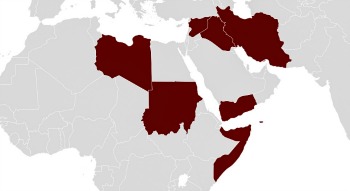To get ahead in life, it’s either you get lucky with business or in the lottery. You won’t get rich by just working a regular 9-5 job and we all know that by now. Competition in the workplace is tough and you can work for decades without getting the recognition you deserve. It’s the exact opposite of being an entrepreneur. In the business world, you reap what you sow. There are a lot of variables, though, but the bottom line is that you have the choice to keep moving forward or not.
 As an entrepreneur, you will take full responsibility for the decisions you make that pertains to your business. It’s that simple. No more passing on the blame to other people but be prepared to reap the rewards of your hard work too.
As an entrepreneur, you will take full responsibility for the decisions you make that pertains to your business. It’s that simple. No more passing on the blame to other people but be prepared to reap the rewards of your hard work too.
With continued globalization and rapid technological advancements, always be on the lookout for opportunities and grab them as soon as you can. Even traditional businesses can’t continue to resist change when the portal used by all now is the Internet. That’s where everybody is – your customers. Countries like America and Europe may be first world nations but many Asian countries continue to enjoy upward growth as well despite the many issues with the global economy and lingering threats of war.
GoDaddy, an internet domain registrar and web hosting company, is casting its eyes outside the U.S. as it targets half a billion small businesses worldwide in its global expansion.
"Our mission is to help individuals take all ideas from inception all the way through to reality," said GoDaddy's chief product officer, Steven Aldrich.
Asia will be a key area for its expansion, he told CNBC on the sidelines of the InnovFest Unbound 2017 conference.
In Singapore on Wednesday, the company launched its next generation website builder which allows users to build, publish and edit a website on their mobile devices.
"You can do everything on your mobile phone. There is not a feature that is on the next generation website that you need to go to your desktop for," he said.
The product is localized for different markets.
Adrich did not say if the website domain name provider was looking to acquire companies in Asia but said the region is important for the company that is committed to working with small businesses.
There is a big market waiting to be discovered in Asia. While there may be some limitations on countries like China, you can always find a way to make things work if you dream just big enough. However, that does not disregard the fact that poverty is a major issue in most Asian countries that should likewise be taken into consideration when putting up a small business of your own.
Malaysian Prime Minister Dato Sri Najib Tun Razak said in his speech that the Association of Southeast Asian Nations (ASEAN) has “achieved a critical mass” to further spur its growth trajectory, with the combined economy growing 28 times to $2.57 trillion in past four decades to become the sixth-largest economy in the world currently.
But he warned that uneven growth that could cause instability, promote extremism and raise trade barriers that limit the flow of goods across borders.
“Our economies are growing faster than most of the rest of the world, and it is expected that by 2050 that the ASEAN economy will amount to over $9.2 trillion, making it the fourth largest in the world... there are other predictions that are even more optimistic, suggesting ASEAN could reach the number four position by 2030 -- a mere 13 years from now,” Mr. Razak told his audience of regional business and political leaders in his keynote address during the forum organised by the ASEAN Business Advisory Council and held in conjunction with the 30thASEAN Summit that culminates on Saturday.
“These are big numbers and impressive positions. But we have yet to achieve them,” he noted.
“The big challenge is to ensure that the integration of our individual economies -- that is necessary for ASEAN itself to become a significant world market -- is driven through. On that, we still have a long way to go.”
Small businesses drive growth and innovation in a lot of Asian countries and are big contributors when it comes to economic growth. Many Asian governments aspire to grow their economy because only then will they be able to distribute the nation’s wealth and support their citizen’s prosperity. Wealth can only be shared to all people of the land with economic success. And at the rate that businesses are sprouting all over Asia, it is no wonder that major key players in the international business arena are actively considering and pursuing business in Asia as well.
You can explore Asia by flying with http://www.freedomairguam.com/. Technically a US territory, Guam is just a stone throw away from most Asian nations, so you’d feel at home touring the continent by flying with them. The world is getting smaller by the minute and whether you are in the US or somewhere in Asia does not matter because everyone will still mind their own business as they pursue their interests in life. What’s important is that you take all the necessary precautions and take calculated risks when dealing with setting up a small business of your own because you don’t want your money to go down the drain just like that because you failed to anticipate problems and solutions for them before it is too late.
The following blog post The Future Is Here For Small Businesses in Asia is republished from www.keatingeconomics.com
source https://www.keatingeconomics.com/the-future-is-here-for-small-businesses-in-asia/






